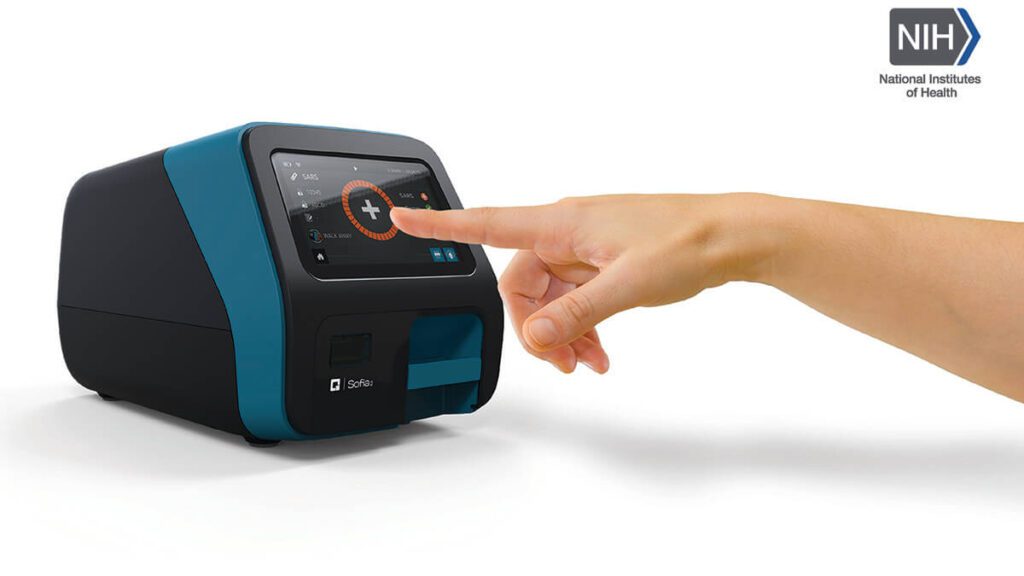
The NIH (National Institute of Health) is set to invest $248.7 million in new COVID-19 testing technologies to better address the current pandemic. NIH’s newly developed Rapid Acceleration of Diagnostics (RADx) initiative has earned contracts to seven different biomedical diagnostic companies to support a wide range of new lab-based and point of care tests that could significantly increase the type, avaialibility and number of tests by millions per week starting as soon as September 2020. Currently, national demand is estimated to be millions more tests per day higher than the current levels, these COVID-19 testing technologies are expected to make a significant impact on expanding the nations testing capabilities.
The seven technologies use various formats and methods and can be performed in a variety of settings to meet different needs. Four of the mentioned COVID-19 testing technologies include innovations in lab-based testing technologies that include CRISPR, next generation sequencing, and integrated microfluidic chips that have a huge potential to increase testing capacity and throughput while reducing testing result times. The other three technologies utilize platforms to provide nucleic acid and viral antigen tests that can produce rapid results at the point of care. The U.S. Food and Drug Administration have been working with NIH and RADx external advisors to offer general advice on test validation and are also prioritizing the review of emergency use authorization (EUA) from tests made by the RADx,
NIH launched RADx on April 29, 2020, just days after receiving an emergency supplemental appropriation of $1.5 billion from Congress to support innovative technologies to make millions of rapid COVID-19 tests per week available to Americans by the fall.
Several experts from academia, government, and industry including the National Institute of Biomedical Imaging and Bioengineering’s (NIBIB) Point-of-Care Technology Research Network (POCTRN) are all contributing to the RADx process via evaluating applications, providing technical and clinical resources and by guiding project teams. NIH has selected approximately 100 of the best concepts to join in an intensive one-week “shark tank” technology evaluation process. 31 of these projects successfully made the cut and have moved to Phase 1, an intense four to six-week period of initial technology validation. The seven tests announced are the first to be selected for scale up, manufacturing, and delivery to marketplace via RADx.